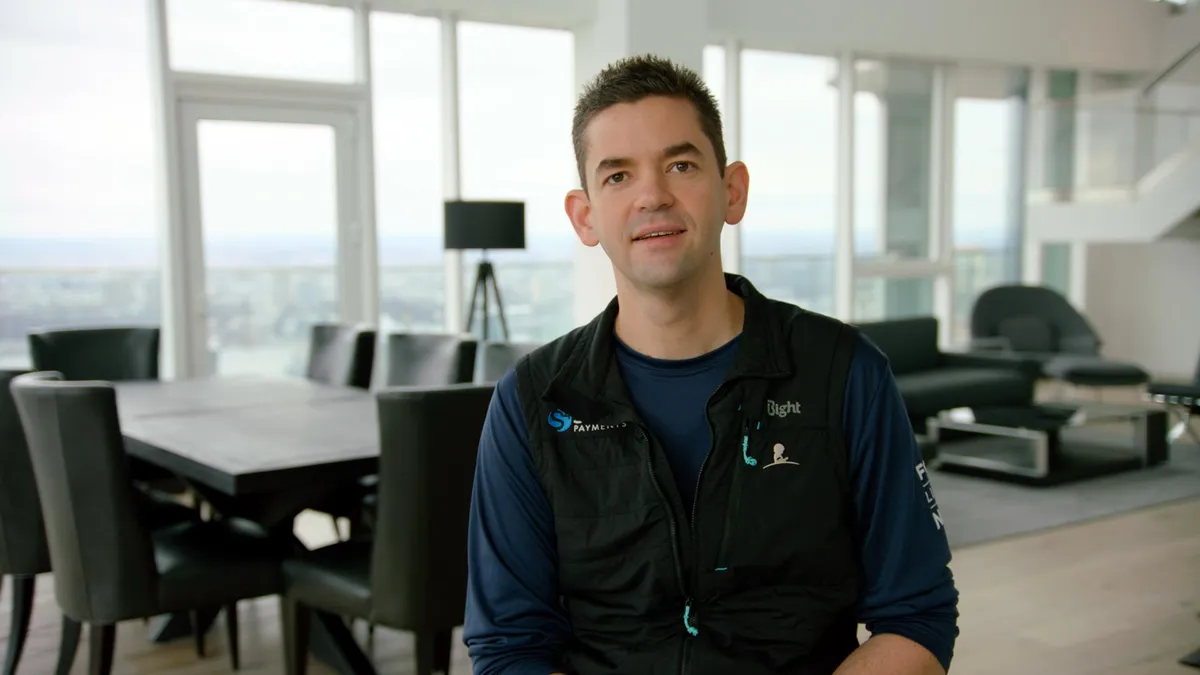Shift4 CEO Jared Isaacman suggested last week the integrated payments company may go back to being private, as executives are “incredibly frustrated” with its public market valuation.
The company’s stock price “is way too cheap right now,” Isaacman said during a Wednesday appearance at the UBS Global TMT Conference. He went on to say he’s “a buyer,” if the stock price makes it “too easy. And I think it actually is becoming easier and easier,” he added. A spokesperson for the company declined to comment further.
Shift4’s initial public offering in June 2020 was priced at $23 per share. This year, the stock price has dropped about 17% to $49.52 at the close of trading on Friday.
Such comments from a CEO can sometimes be a sign to investors that management would consider buying the company, perhaps with help from an investment firm. Such remarks can also drive up the share price if investors believe the company is on the sales block. Indeed, the price of Shift4 shares climbed last week after Isaacman made the remarks.
Isaacman founded Shift4 in 1999, and the Allentown, Pennsylvania-based company’s public debut made him a billionaire. Isaacman also cofounded defense aerospace company Draken International, which he sold to The Blackstone Group in 2019.
Shift4 has an established presence in the hospitality industry, serving hotels and resorts with multiple types of software. It also has niches in the restaurant, stadiums and casinos markets.
This year, the company has agreed to acquisitions of European companies Finaro and Online Payments Group in an effort to build out Shift4’s international e-commerce capabilities.
Since Shift4 has become publicly traded, or possibly before that, “its organic growth has surpassed that of legacy acquirers” such as Fiserv, Fidelity National Information Services and Global Payments, UBS analyst Rayna Kumar said by email.
The market “underestimates Shift4's ability to gain share in new verticals” and to convert its existing payments gateway customers to its end-to-end platform, Kumar wrote in a September note to clients.
Isaacman said his company has made “intelligent moves” and executed on its game plan, and is “certainly not being rewarded for it.”
In the third quarter, the company reported net income of $46.4 million, compared to a $13.8 million loss for the same quarter of 2021, according to company documents. Its gross profit more than doubled over the same quarter last year, to $127.5 million.
Although Isaacman said he loves the challenge of executing at a public-company level, “we’ll look at the share price the same as anyone else and if it gets too low, then we’ll see what we can do,” he said.
Shift4’s management controls about 41% of the economic interest in the business, Isaacman said. From a vote perspective, that figure is “considerably higher,” he added. The company's most recent proxy filing in April shows all executive officers and directors have a combined voting stake of 83%.
The public versus private consideration is about opportunity cost, said Shift4 President Taylor Lauber. “It’s not the traditional cost of being public,” he said. “It’s the cost of executing aggressively inside of a bunch of new verticals in a public way.”
What irks Lauber more than the stock valuation is the transparency Shift4 must provide as a public company. “What I can’t be dismissive of is the idea that competition has a lens that there’s no way they would have if we were a private company,” he said.
In light of that, Shift4 reduced the degree of disclosure with respect to revenue and pricing for some of its top customers during the third quarter of last year, Isaacman noted.
“You know the competitors have these same meetings with you guys,” he said at the conference. “People go back and say, ‘Shift4 said they were going to do this to you and your volume.’ They’re generally not going to sit on their hands. We’re making it harder on ourselves.”











